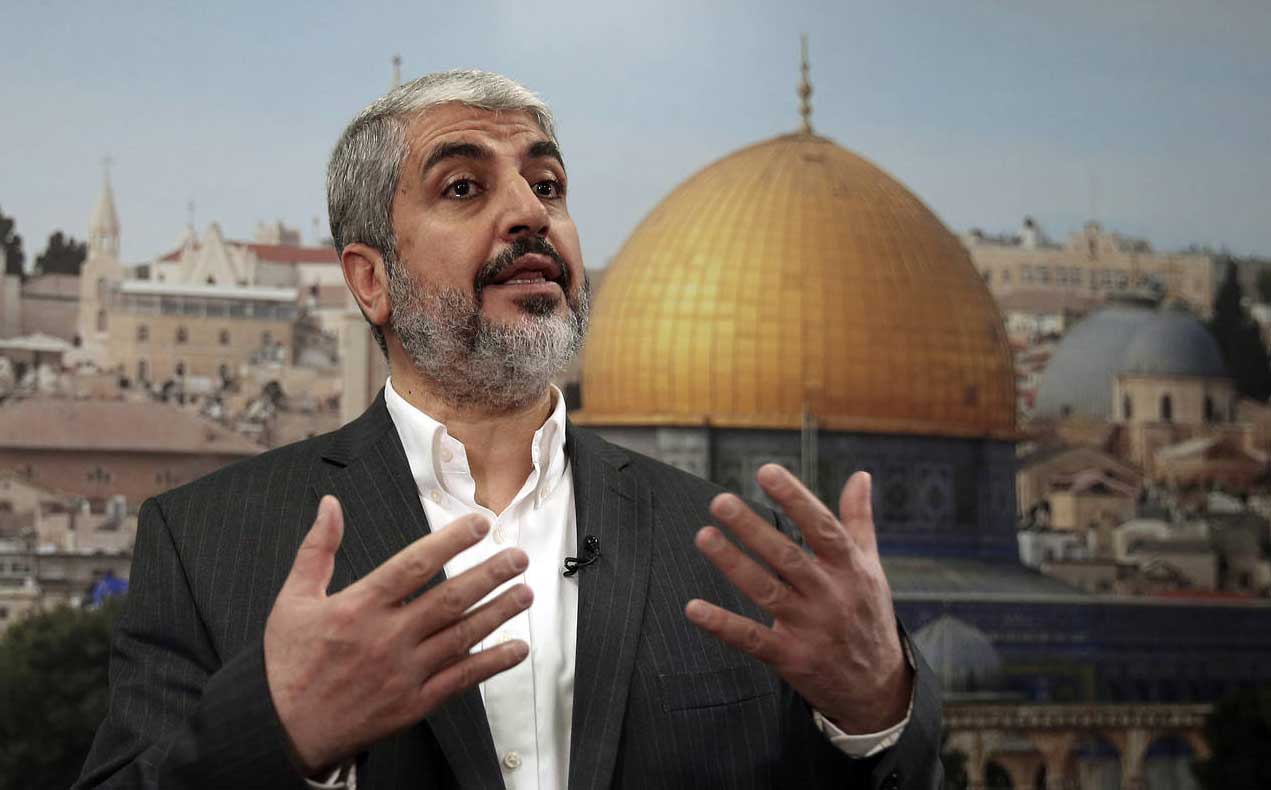Iran is the leading Shiite protagonist in the increasingly bitter conflict against rival Sunni Muslims in the Arab world, but lately that hasn’t prevented Tehran from rekindling one Sunni alliance. The ayatollahs are rebuilding relations with the military wing of Hamas, the Sunni Islamist group that controls Gaza.
According to a senior Western intelligence official, Iran’s Revolutionary Guards during the past few months have transferred tens of millions of dollars to Hamas’s Izz al-Din al-Qassam brigades. Intelligence reports show that the funds have been transferred on the direct orders of Qasem Soleimani, the commander of the Revolutionary Guards’ elite Quds Force, who also dedicated an annual budget to finance Hamas’s military operations.
The funds, according to the intelligence reports, are being used primarily to help Hamas rebuild the network of tunnels that were destroyed during the Israeli Defense Force’s response to rocket attacks launched by Hamas militants from Gaza last summer.
Apart from using Iranian aid to rebuild the tunnel network in anticipation of future confrontations with the Israeli military, the Palestinian brigades are also replenishing their depleted stocks of medium-range missiles, according to the official familiar with the intelligence reports.
The restoration of relations between the Revolutionary Guards and the al-Qassam brigades in Gaza is the latest example of Iran’s deepening military involvement in the Middle East, which so far this year has seen Quds Force officers supporting military operations in Iraq, Syria and, most recently, Yemen. In each instance, the Iranians are basically supporting their Shiite allies, such as the Badr brigades in Iraq and Houthi militiamen in Yemen, against Tehran’s Sunni enemies.
But when it comes to dealing with Hamas, the Iranians are clearly prepared to set aside their antipathy for militant Sunni groups.
Until three years ago, Iran had supplied Hamas fighters with weapons and funding for more than a decade, but relations soured after a rift developed between Tehran and the Hamas leadership over Iran’s support for Syrian President Bashar Assad. The Assad regime is mainly drawn from Syria’s minority Alawite sect, which for many years has enjoyed the support of Iran’s Shiite clerical leadership.
When Sunni opposition groups launched a campaign to overthrow the Assad regime four years ago, Tehran deployed teams of Revolutionary Guards to Damascus to ensure the survival of its pivotal regional ally. The move caused a falling out with Khaled Meshaal,the head of Hamas’s political wing. Mr. Meshaal is a close ally of the Sunni Islamist Muslim Brotherhood, which supports many of the factions fighting to overthrow the Assad regime. It was for this reason that Mr. Meshaal moved from Damascus to Qatar in 2012, with the result that the Qataris have replaced Iran as the main financial backers of Hamas, promising to provide a billion dollars for reconstruction in Gaza following last summer’s conflict.
But Mr. Meshaal, who has lived in exile most of his life, has not always enjoyed a good working relationship with commanders of the military wing in Gaza, who often complain that he doesn’t have a full grasp of their needs. It now appears from Western intelligence reports that the Iranians have taken advantage of the split between the political and military wings of Hamas to revive their links with the al-Qassam brigades.
The Revolutionary Guards are eager to revive their relationship with Hamas because it gives them access to Israel’s southern border, in addition to the northern border with Lebanon, where Iran funds Hezbollah militants. Tehran is also willing to set aside its sectarian differences with Hamas because its Palestinian militants share the same long-term objectives as the ayatollahs: the complete destruction of the state of Israel.
Iran’s renewed relations with Hamas in Gaza will exacerbate tensions between Tehran and Sunni states in the Persian Gulf, such as Qatar, who want to maintain their own relationships with the Hamas leadership. The Qatari military is currently supporting the Saudi-led military offensive against Iranian-backed Houthi rebels in Yemen, and the fact that Iran, Qatar’s bitter rival, is trying to supplant the Qataris as Hamas’s main military backer is likely to lead to renewed tensions between Tehran and Doha.
For the West and for Israel’s allies, the renewed relationship between Iran and Hamas raises a larger concern. Given that Hamas is designated a terrorist organization by the U.S. and its allies, Iran’s fresh outreach to the group should raise another caution flag as world powers negotiate with Tehran over the Iranian nuclear program.
Mr. Coughlin is defense editor of the Telegraph (U.K.) and the author of “Khomeini’s Ghost” (Ecco, 2009).
http://www.wsj.com/articles/iran-rekindles-relations-with-hamas-1429658562









